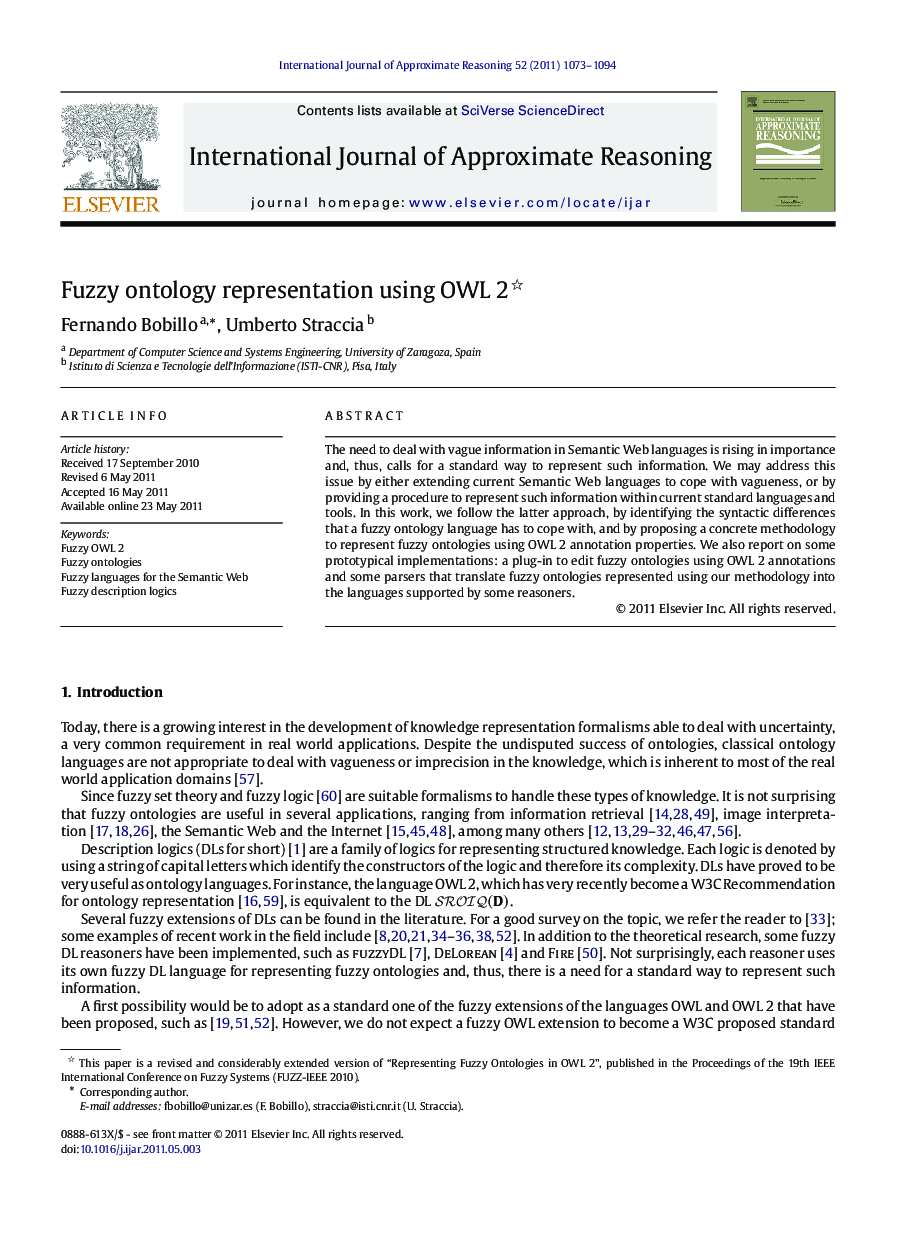| کد مقاله | کد نشریه | سال انتشار | مقاله انگلیسی | نسخه تمام متن |
|---|---|---|---|---|
| 398098 | 1438482 | 2011 | 22 صفحه PDF | دانلود رایگان |

The need to deal with vague information in Semantic Web languages is rising in importance and, thus, calls for a standard way to represent such information. We may address this issue by either extending current Semantic Web languages to cope with vagueness, or by providing a procedure to represent such information within current standard languages and tools. In this work, we follow the latter approach, by identifying the syntactic differences that a fuzzy ontology language has to cope with, and by proposing a concrete methodology to represent fuzzy ontologies using OWL 2 annotation properties. We also report on some prototypical implementations: a plug-in to edit fuzzy ontologies using OWL 2 annotations and some parsers that translate fuzzy ontologies represented using our methodology into the languages supported by some reasoners.
► Methodology for fuzzy ontology development.
► Representation of fuzzy ontologies using OWL 2.
► Implementation of a Protégé plug-in for fuzzy ontology edition.
► Implementation of some parsers translating into generic and popular reasoners.
Journal: International Journal of Approximate Reasoning - Volume 52, Issue 7, October 2011, Pages 1073–1094